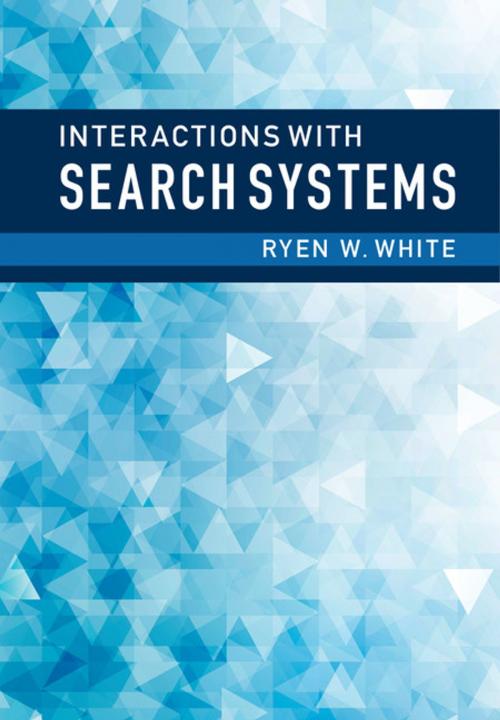Interactions with Search Systems
Nonfiction, Computers, Advanced Computing, Computer Science, General Computing| Author: | Ryen W. White | ISBN: | 9781316564103 |
| Publisher: | Cambridge University Press | Publication: | March 14, 2016 |
| Imprint: | Cambridge University Press | Language: | English |
| Author: | Ryen W. White |
| ISBN: | 9781316564103 |
| Publisher: | Cambridge University Press |
| Publication: | March 14, 2016 |
| Imprint: | Cambridge University Press |
| Language: | English |
Information seeking is a fundamental human activity. In the modern world, it is frequently conducted through interactions with search systems. The retrieval and comprehension of information returned by these systems is a key part of decision making and action in a broad range of settings. Advances in data availability coupled with new interaction paradigms, and mobile and cloud computing capabilities, have created a broad range of new opportunities for information access and use. In this comprehensive book for professionals, researchers, and students involved in search system design and evaluation, search expert Ryen White discusses how search systems can capitalize on new capabilities and how next-generation systems must support higher order search activities such as task completion, learning, and decision making. He outlines the implications of these changes for the evolution of search evaluation, as well as challenges that extend beyond search systems in areas such as privacy and societal benefit.
Information seeking is a fundamental human activity. In the modern world, it is frequently conducted through interactions with search systems. The retrieval and comprehension of information returned by these systems is a key part of decision making and action in a broad range of settings. Advances in data availability coupled with new interaction paradigms, and mobile and cloud computing capabilities, have created a broad range of new opportunities for information access and use. In this comprehensive book for professionals, researchers, and students involved in search system design and evaluation, search expert Ryen White discusses how search systems can capitalize on new capabilities and how next-generation systems must support higher order search activities such as task completion, learning, and decision making. He outlines the implications of these changes for the evolution of search evaluation, as well as challenges that extend beyond search systems in areas such as privacy and societal benefit.















